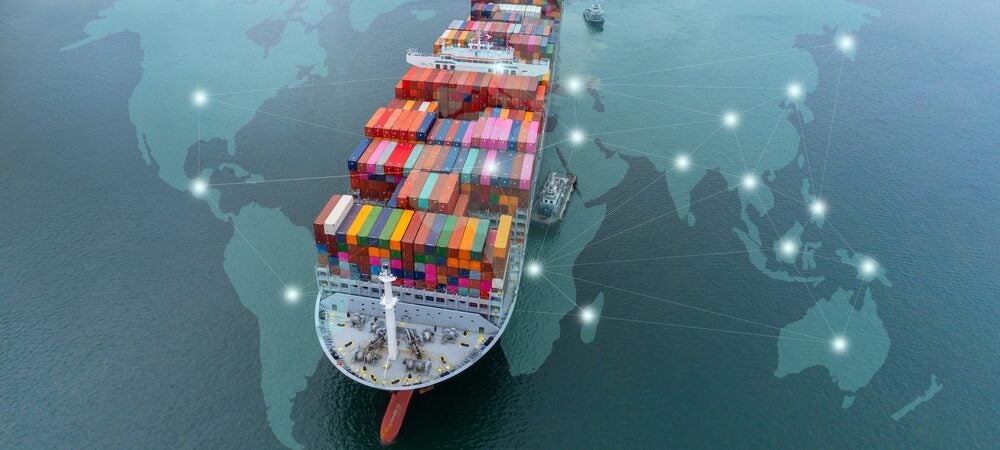The 1980s and 1990s saw a policy revolution in developing countries in which many highly protected (if not closed) economies were opened to world trade. These reforms were largely undertaken unilaterally, but international economic institutions such as the World Bank, the International Monetary Fund, and the General Agreement on Tariffs and Trade/World Trade Organization supported these efforts. This paper examines the ways in which these institutions promoted, or failed to promote, trade policy reform during this pivotal period.
1. INTRODUCTION
The decade from 1985 to 1995 was a period of dramatic trade policy reform, particularly by developing countries. Many of them shed import substitution policies that had been in place since the 1950s and embraced exchange rate and trade reforms that opened their economies to the world (Dean, Desai, and Reidel 1994; Irwin 2022). In doing so, previously closed economies such as China and India became open to world trade and investment, and other emerging markets in Latin America, Asia, and Africa reduced their trade barriers and increased their participation in global trade. These policy changes reshaped the world economy, enabled the emergence of global supply chains, and produced the high level of interdependence that we see today.
Most countries opened their economies by performing the trade policy threestep: (1) devaluing their currencies and establishing competitive exchange rates, (2) abolishing foreign exchange controls and converting quantitative import restrictions into tariffs, and (3) gradually reducing the dispersion and level of those tariffs. In most cases, these reforms were undertaken unilaterally, often in the midst of an economic crisis. The lessons of experience, such as the success that Taiwan and Korea enjoyed after opening their economies in the 1960s, along with changing ideas about economic policy, contributed to the decision to reform their trade policies (Krueger 1997).
The World Bank, the International Monetary Fund (IMF), and the General Agreement on Tariffs and Trade (GATT)—then the World Trade Organization (WTO) after 1995—supported and encouraged the reform efforts. These institutions play an influential role in shaping international economic policy and their charters gave them a common purpose in promoting world trade.1 Although these organizations may not have been the driving force behind the reform efforts, what impact did they have in promoting the trade reforms of the 1980s and 1990s?2
Evaluating the contribution of these institutions to trade reform in developing countries is challenging because they approached the goal of expanding trade in very different ways. The GATT established trade rules and facilitated multilateral negotiations to reduce tariff and nontariff barriers to trade. The World Bank made loans to countries conditional on their making changes to their trade policies. The IMF sought “exchange rate stability” to help “in the elimination of foreign exchange restrictions which hamper the growth of world trade.” The institutions also differed in their ability to influence a country’s policies. The GATT/WTO was the weakest of the three in having virtually no leverage over sovereign governments. The World Bank and IMF had financial resources that they could use to win compliance with the policies that they deemed desirable.
Empirical assessments of the impact of these multilateral institutions on government policies and economic outcomes are plagued with difficulties. Studies based on observational data suffer from sample selection problems: the countries that choose to join the GATT/WTO, accept a World Bank loan, or enter into an IMF program are not randomly selected. These institutions dealt with different countries at different times and in different ways. The degree of compliance with loan conditionality is hard to observe. And it is not possible to know the counterfactual of whether a country’s policies would have changed even in the absence of those actions.
That said, it is possible to reach some tentative if impressionistic judgments, perhaps even surprising ones, about the contribution of these institutions to the trade reform process. One might suspect that the GATT/WTO, which of the three institutions focuses most directly on trade, had the biggest impact on developing-country policies, but on closer examination its impact was limited. The World Bank provided billions of dollars in trade policy loans, but this may not have had a decisive influence on a country’s decision to undertake trade reforms. Of the three, the IMF’s role in promoting trade reform may be the most underrated. The IMF focused more on stabilization and macroeconomic stability and yet it provided critical ingredients to trade reforms by encouraging countries to devalue overvalued currencies and start the process of eliminating exchange rate controls and import restrictions.
Working Paper- PIIEDouglas A. Irwin is a nonresident senior fellow at the Peterson Institute for International Economics since February 2018, is the John French Professor of Economics at Dartmouth College.
To read the full working paper, please click here.

